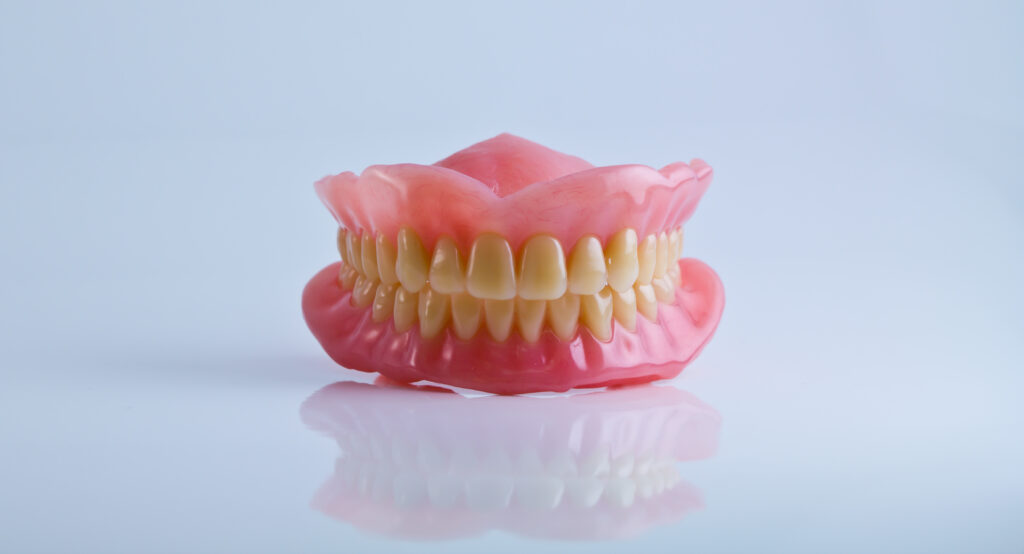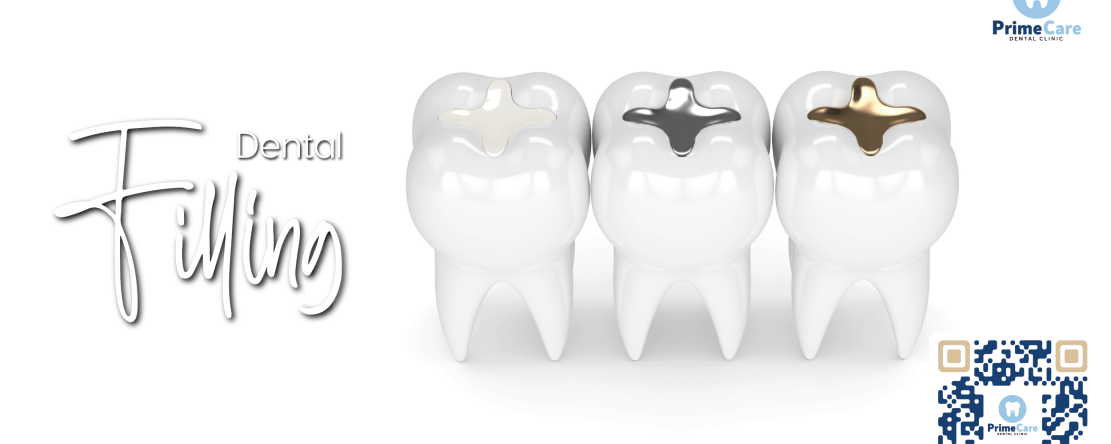Dentures: Types, Procedures, Risks, Benefits, and Alternatives
Discover the perfect solution for your smile with our premium dentures. Crafted with precision and care, our dentures offer unparalleled comfort and functionality, restoring confidence and allowing you to enjoy life to the fullest. Whether you’re seeking full or partial dentures, our expert team ensures a custom-fit solution tailored to your unique needs. Say goodbye to discomfort and hello to a radiant smile – explore our range of denture options today!
What are dentures?
Dentures serve as removable oral devices designed to replace missing teeth, whether in the upper jaw, lower jaw, or both. Skilled dental technicians meticulously create dentures utilizing a variety of materials including acrylic, resin, nylon, metal, and porcelain.
Types of dentures
There’s a bunch of denture options out there! The one that fits you best totally depends on what your mouth needs.
Full dentures:
Commonly known as a complete denture, this device replaces an entire set of missing teeth in one arch. Resting on your gums, it depends on either your palate or lower jawbone ridge for stability. Sometimes, you might need denture adhesive to secure it firmly in place.
Full dentures are probably what you envision when you think of traditional dentures. They comprise artificial teeth attached to a gum-colored base.
Most folks who wear dentures usually remove them at night to clean them and let their gums relax.
Partial dentures:
If you’ve lost a bunch of teeth in one or both jaws, partial dentures could be a solution. Like full dentures, they lean on your gums and bone for support. But what makes them different is they’ve got these neat clasps that latch onto your remaining natural teeth, giving you extra support and stability.
Immediate dentures:
Occasionally, you require tooth extractions prior to getting dentures. An immediate denture is worn immediately following these extractions.
In certain instances, immediate dentures are temporary fixtures. Once the healing process is complete, your dentist will swap them out for your permanent dentures. Alternatively, in some cases, you may be able to wear your permanent dentures right after surgery. Your dentist will provide guidance on what to expect based on your specific circumstances.
Implant-retained dentures:
Rather than depending solely on your jawbone ridge and gums for stability, implant-retained dentures are affixed to dental implants. These implants are tiny, threaded posts surgically inserted into your jawbone to serve as replacements for missing tooth roots.
Similar to conventional dentures, implant-retained ones are removable. You remove them nightly for cleaning and soaking.
What sets implant-retained dentures apart is their enhanced stability compared to traditional dentures. They “snap on” to implants integrated into your jaw, eliminating the need for denture adhesive. Consequently, some refer to them as “snap-in dentures.”
Implant-supported dentures:
In contrast to other denture options, implant-supported dentures (also known as permanent or hybrid dentures) are fixed in place and cannot be removed by the wearer. Only your dentist has the ability to remove them.
Implant-supported dentures are often recommended for individuals seeking a non-removable dental solution. However, it’s important to note that the downside of having a fixed denture is the necessity for more meticulous daily cleaning, including flossing beneath the denture.
Factors Influencing Denture Choice:
- Number of Missing Teeth
- Duration of Tooth Loss
- Preference for Removable or Non-Removable Appliances
- Jawbone Density and Volume
- Relationship Between Upper and Lower Jaws
- Personal Preferences
Denture Consultation Process:
- Examination: Your dentist will thoroughly examine your mouth, assessing your jaws, gums, and any remaining teeth.
- Dental X-Rays: X-rays will be taken to evaluate the thickness of your jawbone.
- Eligibility Assessment: If deemed eligible for dentures, your dentist will discuss various denture options with you.
What happens during a denture fitting?
During a denture fitting, your dentist will insert your new dentures into your mouth and assess their fit. They will meticulously examine for any regions causing undue pressure on your gums and fine-tune the denture accordingly.
It’s crucial to understand that achieving the perfect fit typically requires multiple office visits. This is because the soft tissues in your mouth require time to adapt to the denture, necessitating gradual adjustments over time.
“A smile is the prettiest thing you can wear, and good dental care ensures it stays that way.” – Dr. Wong

What advantages do dentures provide?
- Enhanced chewing capability
- Improved appearance
- Better speech clarity
- Enhanced nutritional intake, facilitated by improved chewing function
What are the limitations of dentures?
- Traditional removable dentures, in particular, pose certain challenges. For instance, wearers often experience issues such as shifting, wobbling, or slipping during speech or chewing.
- Furthermore, tooth loss can result in gradual jawbone shrinkage, leading to facial changes like sunken-in cheeks.
See More On: Teeth Scaling Price in Kuala Lumpur & Selangor
How to get used to wearing dentures?
The adjustment period for dentures varies from person to person. It typically takes time, ranging from weeks to months, to become accustomed to your new dentures. Expect that you may require multiple adjustments in the initial weeks to attain the desired comfort and fit.
Do dentures have lifespan?
Dentures typically last between seven to 10 years on average. After this period, most individuals will require replacement dentures.
Additionally, it’s recommended to undergo a denture reline every one to two years or as soon as you notice any changes in the fit of your denture. During this procedure, your dentist will add material to your denture to enhance its comfort and fit.
What are the alternatives of dentures?
Two primary alternatives to dentures are dental implants and dental bridges.
Dental Implants: Dental implants serve as a popular alternative to dentures. They mimic natural teeth roots, stimulating the nerves in your jaw and preventing bone loss. This stimulation prompts your nerves to signal your brain, which in turn sends nutrients to your jaw, maintaining its strength and health. While dental implants often entail a higher initial cost compared to dentures, they offer the potential for a lifelong solution with proper maintenance.
Dental Bridges: Dental bridges provide an effective alternative for individuals with several healthy teeth remaining. They are particularly suitable for those with one to three missing teeth in a row. A dental bridge comprises crowns (known as abutments) flanking artificial teeth (pontics) positioned between them. Your dentist affixes the crowns to your natural teeth on either side of the gap, with the artificial teeth filling in the space to restore your smile.
Common questions about dentures?
Is it advisable to wear dentures while sleeping?
Many individuals find it more comfortable to sleep without their dentures, allowing the tissues in their mouth to rest. Whether you choose to wear them during sleep or not, it’s essential to remove them for a minimum of eight hours each day.
Removing your dentures for at least eight hours daily:
- Provides relief for your gums.
- Decreases the presence of harmful oral bacteria.
- Helps maintain the strength of your jawbone.
When is it necessary to contact my dentist?
It’s advisable to schedule a dental appointment if you experience any of the following with your dentures:
- Notice a loosening sensation.
- Feel discomfort or irritation on your gums.
- Hear clicking sounds while speaking.
- Observe any damage or discoloration.
- Have been using the dentures for over 10 years.
Experiencing any of these signs could indicate the need for replacement dentures.
About Us
Let our dedicated dentist at PrimeCare Dental Clinic inspire you with personalized care and a genuine commitment to putting a bright smile on your face. Experience the warmth and expertise that make our dental practice truly special.
Recent Post
Newsletter
Other Categories:
Post Tags:
